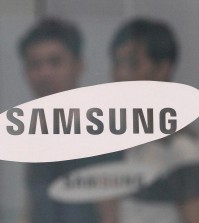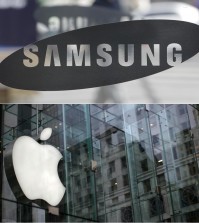- California Assembly OKs highest minimum wage in nation
- S. Korea unveils first graphic cigarette warnings
- US joins with South Korea, Japan in bid to deter North Korea
- LPGA golfer Chun In-gee finally back in action
- S. Korea won’t be top seed in final World Cup qualification round
- US men’s soccer misses 2nd straight Olympics
- US back on track in qualifying with 4-0 win over Guatemala
- High-intensity workout injuries spawn cottage industry
- CDC expands range of Zika mosquitoes into parts of Northeast
- Who knew? ‘The Walking Dead’ is helping families connect
S. Korean conglomerates still sitting on $496 billion of cash
SEOUL (Yonhap) — South Korean conglomerates are still sitting on large amounts of cash, wary of economic uncertainties and weak domestic demand, despite government pressure for them to spend more on wages, dividends and facilities, data showed on Wednesday.
The combined retained cash reserves of 83 listed firms affiliated with the country’s 10 largest business groups, excluding financial units, came to 537.8 trillion won (US$496 billion) as of the end of September, up 5.7 percent from 508.7 trillion won at the end of March, according to the data compiled by CEO Score, a financial information provider.
Retained cash reserves refer to accumulated earnings held by a company after taxes and dividends are paid out. The reserves also include capital surplus.
The data also showed cashable assets at the 10 conglomerates rose 5 trillion won to 153 trillion won over the cited period.
A rise in such surplus cash usually reflects a firm’s improving financial condition, but it may also mean the company is reluctant to spend on dividends and investments.
The South Korean government has said it will tax scorporate cash reserves that are in excess of a certain amount in a broader effort to spur fresh investments and revive weak domestic demand by prodding companies to spend more, hoping the money will trickle down to households to give them extra cash for consumption.
Earlier this month, the country’s parliament passed a revised bill on corporate tax that will become effective starting next year.
Under the revised tax code, an estimated 4,000 companies will have to pay a surcharge on their corporate taxes unless they spend a certain portion of their earnings on wages, dividends and investment.
By group, Samsung Group, the country’s top conglomerate, held the largest amount of cash reserves at 196.8 trillion won at the end of September, accounting for 37 percent of the total. Samsung’s retained cash reserves increased 7.9 percent over the six-month period, the data showed.
Samsung Electronics Co., the group’s flagship unit, held 168.6 trillion won in cash reserve at the end of September, up 6.5 percent from six months earlier.
Cash reserves of the country’s second-largest conglomerate, Hyundai Automotive Group, surged 7.4 percent to 124 trillion won over the cited period, with those of energy and telecom conglomerate SK and home appliance conglomerate LG gaining 6.8 percent and 5.6 percent, respectively, to 58.8 trillion won and 48 trillion won, they showed.
But shipbuilding conglomerate Hyundai Heavy Industries and leading logistics conglomerate Hanjin saw their retained cash reserves dip 12 percent and 3.3 percent, respectively, to 17.2 trillion won and 2.7 trillion won over the cited period, the data showed.

















Pingback: chaussures nike requin